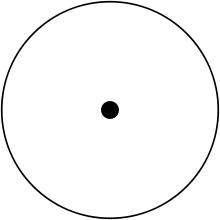Our universe is a thought, an imagining of God, The Knower.
Reality is real, but the physical aspect of reality is an illusion – space and time are illusions – of consciousness.
Looking for God in the universe is like searching inside the dream for the dreamer.
The dream is not separate from the dreamer. God does not create something other than, or apart from, Himself.
The dream is the dreamer, The Knower is his imagining. He the source of all consciousness. He is awareness, omniscience and will, and there is nothing which is not Him.
Looking for proof of The Knower in the universe is like searching the dream for proof of the dreamer, when the act of dreaming is the proof, the very existence of the dreamt is the proof.
Proof of The Knower is not in our reality, it is our reality.
Truth is whatever The Knower is thinking.
Introduction
Science is an amazing tool for modelling our universe. Using scientific methodology, we unravel mysteries and uncover truths which help us understand how our universe became what it is, and to predict what it will become. Knowledge gained by science gives us the power to manipulate and control our surroundings and build ever more complex tools.
Note: I generally use the term “world” to refer to our reality, the ‘place’ in which we find ourselves, all that we observe and experience. I avoid the term “universe” which carries with it (for me, in any case) an assumption of physicality and time.
According to the Oxford English Dictionary, Science is, “The intellectual and practical activity encompassing the systematic study of the structure and behaviour of the physical and natural world through observation and experiment.” We perhaps don’t often think of science as being a theory, we tend to think of it more in terms of an activity, an enterprise or methodology for acquiring knowledge. But science itself is a theory – a group of assumptions regarding our universe, a world-view based on the philosophy of Materialism – plus a rulebook on how, using empirical evidence, to acquire knowledge based on those assumptions.
Note: I generally use the term “science” to refer to the theory or world-view based on Materialism, and “scientific methodology” to refer to the rulebook for acquiring knowledge using empirical evidence.
But being true to scientific methodology means we mustn’t build theories based on the presumed existence of things for which there can never be any empirical evidence – i.e. for which we can never objectively observe. So what if science, itself, is such a theory?
If there is contradictory evidence to science, or if all of science relies on the existence of things which cannot – and can never – be objectively observed or tested, then scientific methodology says science is discredited as a theory and should be rejected. If so, and we do not reject it, then we are choosing to ignore the contradictory evidence, and take the assumptions nevertheless to be true: This is the response of one who needs the theory to be true for their world-view, and prefers to live with self-deception rather than face the disappointment.
Athiests, for example, require science to be true for their world-view, and prefer to view the assumptions as facts (deception), rather than accept that that they couldn’t possibly be more wrong (disappointment).
The change from Ptolemy’s geocentric (Earth-centred) planetary-system model to Copernicus’s helocentric (Sol/Sun-centred) model, was a paradigm shift pur sang. It not only provided a simpler model requiring fewer ‘unexplained causes’, it also paved the way to new insights and understanding. All this, ‘simply’ by rejecting the fear of disappointment at not being the centre of the universe, and daring to look at the puzzel from a different perspective. Copernicus could explain why the Ptolemic model looked right from their perspective, and that, I believe, is crucial to making any paradigm shift.
Similarly, to make a paradigm shift from science to a new world-view, it is imperitive the new world-view be able to account for why science seems to work.
So what if science is now actually obstructing our pursuit of truth? Or perhaps the safety of being able to predict and control is even tempting us away from truth. What contradictory evidence could their be, why does science seem to work, and where does all this lead us? Does freeing ourselves of the unobservable assumptions made by science allow us to get any closer to answering the ultimate question: “Who am I?”
Language. Various tenses in, say, German, versus English. When you are truly fluent in, say, German, you feel the difference in verb-tense as a change in perspective, something which literally and figuratively quite foreign to someone who only speaks English. In English, we have the verb “to be”, and it may seem odd to think that one could express “I am” in a different way. But in Hebrew, for example, there is no present-tense for the verb “to be” – rather than saying, “I am a man”, you would say, “I man”. So the words “I am” can simply be expressed, “I”. In order to do that, you have to view “I” not as a simple noun, or as an object, but as a living ‘noun-verb’. Languages can provide paradigm shifts – new perspectives in relation to other languages – and may be the reason why more philosophy tends to come more from speakers of some languages than from others.
No wolly-pictures of brains with prisms and rainbow-beams. No angel-wings or crystals. No quackery or un-founded ‘spiritualism’. This is a no-nonsense book which will take you on a journey of logic, with scientifically verifiable claims, to an astonishing but unavoidable conclusion: Reality is not even remotely like what we’ve been taught. You can train yourself to experience a paradigm shift to a new and more consistent world-view. A world-view that everyone knows, deep-down: we are the One.
Being and Becoming.
